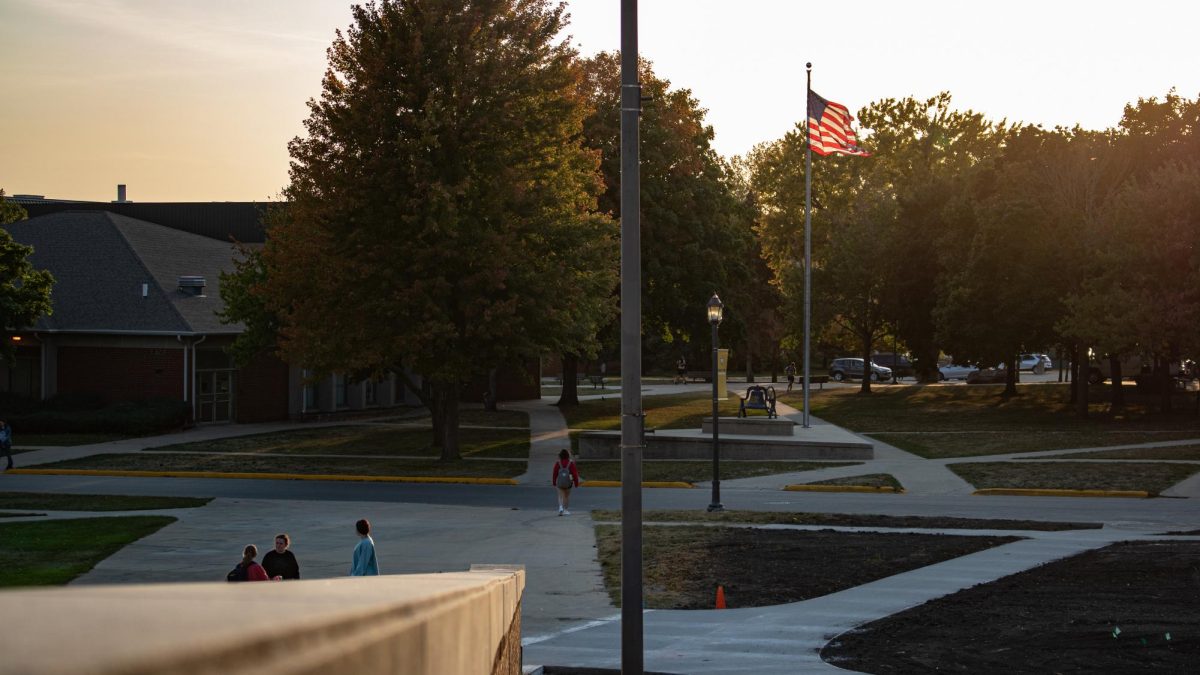Lindsey Graham | Assistant Opinion Editor
While studying abroad this last fall, I definitely learned a lot about myself and the world around me. I also learned about studying abroad, and what I wish I had done differently:
1. Look at the academics of the school: When applying and preparing for studying abroad, academics were the least of my worries. Yes, I made sure the school I picked had my major, but I didn’t look into the rigor of the school or the course offerings. I wish I had picked a different school that had more classes that would carry over into my majors at Buena Vista University (BVU) as well as challenge me academically.
2. Budget better: As any independent college student needs to learn, I definitely needed to put together a better budget for studying abroad. With the cheap travel opportunities, I got a little carried away purchasing flights for many trips, that I didn’t realize I would still be spending an additional $100-200 each weekend on those trips. I ran out of money within my first month in Europe. I wish I saved more money before studying abroad because you will spend around $3,000-5,000 on top of your plane tickets.
3. Pack differently: Packing is so hard to figure out. I mean, you have to live out of a suitcase for 4 months! There’s no way of knowing exactly what you’re going to want to wear for a semester abroad until you’re actually there. I found myself saying, “I wish I would have brought ___,” so many times. This includes pants, leather leggings, and even more undergarments, because hey, when you have to carry your laundry 6 blocks, you really limit the number of times you have to do laundry. Wearing clothes 5 times before washing them is normal. Buy fabric spray and embrace it.
4. Make a Bucket List: If I could go back to before I left for Europe, I would make sure that I put together a list of things I had to do before leaving Europe. I left the semester still having some regrets on never doing certain things: like scuba diving at Nemo 33 in Brussels (the world’s deepest pool), or eating the traditional meal of Belgium: moules frites (muscles and fries). When planning trips, I never really had a country I wanted to visit, so I just flew by the whim of my travel buddies.
5. Research more ahead of time: I wish I could have come into Europe knowing more about the history, political processes, and cultural aspects of the countries I was traveling to so I could further appreciate what was all in front of me. Yeah, visiting Ghent was cool, but knowing more about the Treaty of Ghent would have made so much more of an impact on that trip.
6. Start earlier on paperwork: There’s nothing like spending your last few days with friends and family rushing around trying to get paperwork all situated (flights, insurance, VISA, citizenship status forms, etc.). I wish I had gotten the ball rolling sooner on paperwork so I could relax and enjoy my last week at home. Also, this applies to applying for my credit card as well. Make sure you have a chipped credit card with no international fees. I repeat: Get a chipped credit card.
7. Be a better student: I wish I put more effort into homework, learning the material, and getting to know my professors. While I certainly learned a lot about the world outside of the classroom, I definitely could have gotten more out of my courses. It just takes more effort because your teachers won’t get to know you like professors here at BVU do, and the teaching styles vary.
8. Make a better effort to stay in the loop with campus: Being 7 time zones away is a given that keeping in contact with everyone back home will be difficult. Coming back to campus is one of the hardest parts of study abroad culture shock. If there were a way to stay in the loop with everything going on at campus, it would lesson the confusion and Fear of Missing Out (FOMO) upon returning. However, I’m not really sure there is a way to accomplish that without wasting your time abroad glued to your phone and what’s going on back home.
One definitely cannot do it perfectly when studying abroad for the first time. So if you are considering studying abroad, 1) do it, and 2) utilize campus connections with other students who have done it to help get some great advice.









